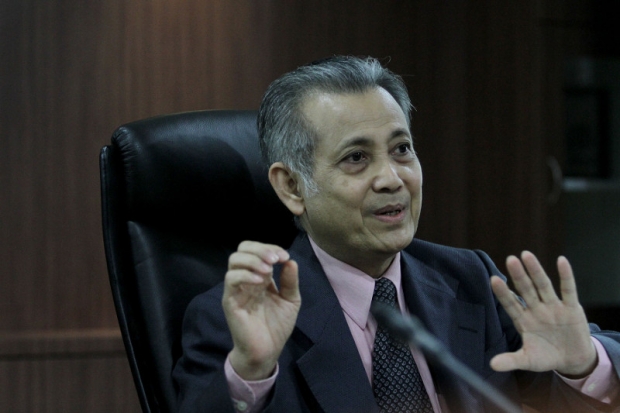You Could Get Sued By The Malaysian Govt If You Accuse Them Of Shady Dealings
"If the law allows it, then it cannot be against the public interest."
In what can only be termed as a step backwards with regards to free speech, State and Federal Governments can now sue individuals for defamation, ruled the Court of Appeal last Thursday
This retrogressive ruling was made by Malaysia's second highest Court in a case involving Sarawak State Govt, Sarawak Financial Authority, and DAP's Bandar Kuching MP Chong Chieng Jen
According to this report in Malaysiakini, dated 10 April, Justice Abdul Rahman Sebli wrote the majority judgment. He noted that Section 3 of the Government Proceedings Act, 1956 (GPA) does not exclude proceedings in libel or defamation by or against the government, adding that Section 3 gives the government the same right as a private individual to enforce a claim against another individual by way of civil action, adding that this is a statutory right, not a common law right.
Justice Rahman said the operative phrase are "which would, if such claim had arisen between subject and subject, afford ground for civil proceedings", meaning to say if a claim affords ground for civil proceedings between individuals, it will also afford ground for civil proceedings between the government and individuals.
In the 28-page long judgement, justice Rahman added:
"Thus, anything that is said about the government that has a tendency to lower its reputation in the estimation of right-thinking members of the public, or to expose it to hatred, contempt or ridicule, will give rise to a cause of action in defamation."
Noting that he is "not suggesting that the government cannot be criticised," justice Rahman added, "What cannot be done however is to defame the government."
Additionally, justice Rahman said it is not against public interest
To the question "Is it in the public interest to allow the government to sue for defamation?", our answer, justice Rahman said, is simply this:
"If the law allows it, then it cannot be against the public interest."
"Parliament," justice Rahman added, "does not legislate in vain. It must have had the public interest in mind when enacting section 3 of the Government Proceedings Act by not excluding defamation from its ambit."
The Sarawak State Govt and Sarawak Financial Authority was appealing against the Kuching High Court judgment barring it from suing DAP's Bandar Kuching MP Chong for his remarks alleging that RM11 billion of public fund had disappeared into a "black hole"
So how does this ruling affect you as an individual?
In essence, it means if you accuse or so much as even imply that the Federal or State Government(s) is involved in any wrongful or corrupt dealings, they can now sue you for alleged defamatory remarks made against them.
DAP's Kuching MP had merely alleged that RM11 billion of public funds have disappeared without explanation amounting to 50% of Sarawak's entire budget over the past 8 years, yet the Sarawak State Government accused him of defamation despite him not making explicitly clear allegations of corruption.
In other words, if you have even remotely accused the government of dubious dealings, you, in theory, are susceptible to being sued by your government.
Even Mohd Hishamudin Mohd Yunus, a former judge of the Court of Appeal, who retired last September, has described the decision as retrogressive and going against the common law principle.
He added that it "goes against the principle of good governance."
"With respect, the majority judgment is not only against the established common law principle, it is also retrogressive in nature. The government has no shortage of funds if it wants to sue the citizens for defamation. But the citizens, on the other hand, do not have the same resources to defend themselves."
"Thus, the people will be discouraged from criticising and questioning the government. The majority judgment, therefore, is not in consonance with the citizens' freedom of speech and the principle of good governance," Malaysiakini quoted Mohd Hishamudin as saying in its report, dated 11 April.


